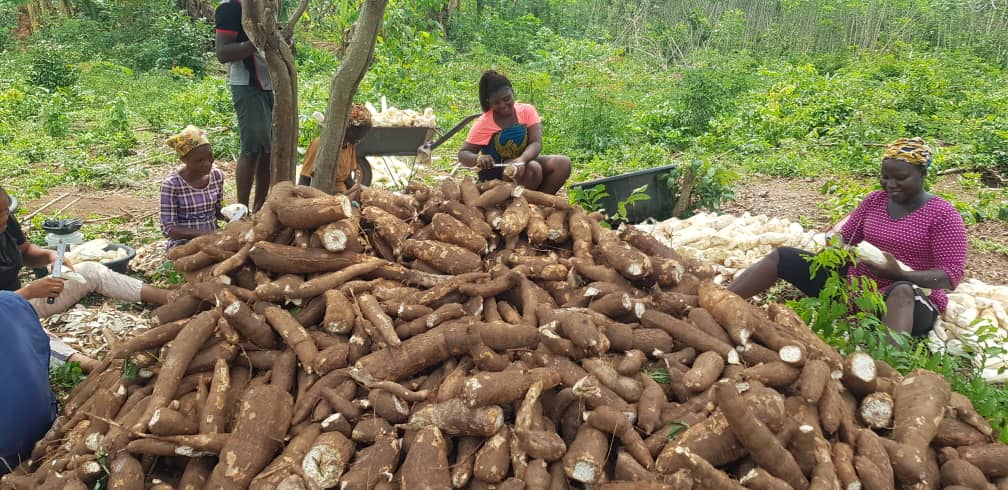
NIGERIA: Salesians develop farm thanks to donor funding from Salesian Missions
40 farmers receive training in better methods of crop production.
NEW ROCHELLE, NY (Oct. 25, 2021) Salesian missionaries have developed the St. Joseph’s Farm, in Sagamu, Nigeria, thanks to donor funding from Salesian Missions, the U.S. development arm of the Salesians of Don Bosco. The farm is a center for training, research and production on 25 hectares of land acquired by the Salesians. Forty farmers received training in better methods of crop production to help improve production and revenue. A piggery and fishery were also constructed with this funding.
St. Joseph’s Farm assisted mostly poor women, young girls and unemployed youth from the local area and provided training and hands-on help with farming techniques. In addition, the project helped small farmers develop skills to manage their farms for increased productivity, self-employment and sustainability.
With a population close to 256,000, including a mix of Christians, Muslims and traditionalists, Sagamu is known for its agricultural products such as cocoa and kola nuts. The region’s rich vegetation and large masses of unoccupied or unused land attract people who develop an interest in agriculture. Yet, the region has high rates of unemployment and underemployment, as well as a low rate of formal education.
“At St. Joseph’s Farm, young farmers are able to practice their techniques and become better at what they do, which increases their employment opportunities and revenue,” said Father Gus Baek, director of Salesian Missions. “Better employment and stable income will also help to curb migration and provide stable support for vulnerable people in the community.”
St. Joseph’s Farm is one among many programs that Salesian missionaries have launched since they first started working in the region in 2014. There is also a parish ministry, missionary out-stations, youth ministry, chaplaincy and agro-projects.
According to UNICEF, Nigeria is Africa’s most populous country and the ninth most populous country in the world. By United Nations estimates, Nigeria will be one of the countries responsible for most of the world’s total population increase by 2050. While Nigeria has the second strongest economy in Africa, it also has extreme rates of poverty with 100 million people living on less than $1 a day.
About 64 percent of households in Nigeria consider themselves to be poor while 32 percent of households say their economic situation had worsened over a period of one year, according to UNICEF. Poverty still remains one of the most critical challenges facing the country and population growth rates have meant a steady increase in the number of people living in conditions of poverty.
### Contact: [email protected]
